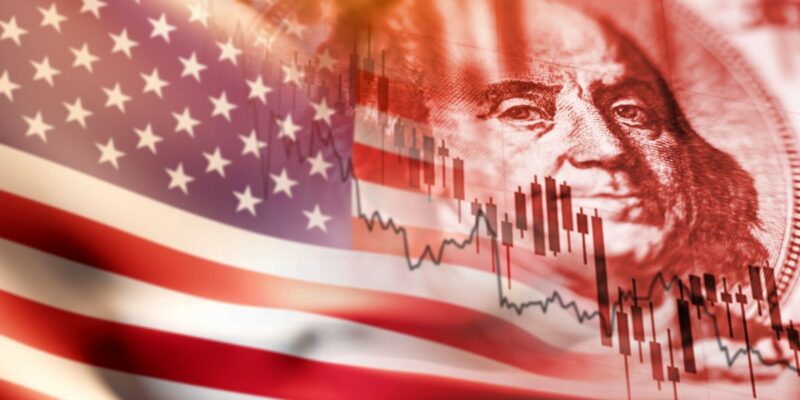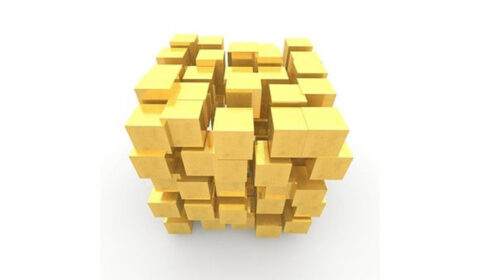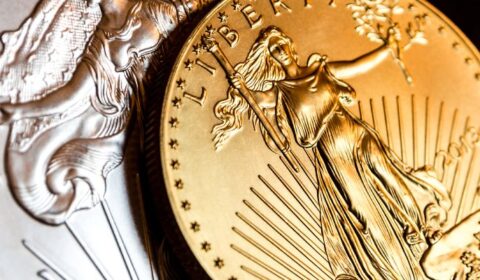Downfall of The Triad: Are We Looking At An Economic Recession In the UK, US and China?

The following article is created and or curated by the Orion Metal Exchange for the benefit of our followers. We seek to provide relevant precious metals, economic and geopolitical content that can impact your retirement and savings. If you are interested in learning about precious metals investing, call 1-800-559-0088, for a FREE investor kit.
An economic recession isn’t like pulling a rabbit out of a hat, which is to say that it doesn’t happen without warning. It’s a process that’s years in the making, involving many moving pieces — policies, economic shifts, etc. — without one specific influencing factor.
But if we were to look back at the Great Recession or the financial crisis of 2008, a major driver was industrial deregulation, which led to inflation. Inflation is always a central element of a recession, with a number of overall factors contributing to its escalation.
Is the Economy Really Failing?
Currently, the global economy and individual GDPs of major economic powers around the world are taking a hit. There are several reasons behind this, many are not even directly related to inflation or deregulation.
In order to understand what to expect, we’ll first need to rewind and talk about the trends, policies and decisions that brought us here — i.e., the brink of a recession.
Let’s break it down, one by one, starting with the American economy and what’s pushing it toward the edge.
The US
A lot has been happening on home turf ever since President Trump took his oath and came into power. From heightened military spending to a seemingly pointless trade war with China, the warning signs of a failing economy have been brewing slowly over the past two to three years.
According to the predictions by the Federal Reserve, the gross domestic product will grow to 2.3% by the end of 2019, whereas in 2020, it’ll fall dramatically to 1.7%.
Now, Trump’s promise of the GDP growing to over 4% — and even 5 or 6% — is a serious problem for his re-election campaign, but that’s beside the point.
What matters is that achieving that rate at this point is simply impossible without sending the economy into a quick boom and bust that would bring on a recession by 2021.
Even though our GDP growth has been deemed healthy, if not extraordinary, by many financial analysts, it has led the country to inflation and an inverted yield curve.
Another factor that indicates the possible coming of a recession is one talked about by many but understood by few.
What we’re referring to is the fact that the economic impact of changing weather and the overall climate is likely to cost the US economy billions — $112 billion, according to one estimate.
The report gathered by the U.S. Government Accountability Office states that the potential impact of climate change requires the government to allocate appropriate resources immediately for mitigation, or that $112 billion figure will only increase annually.
Over the last decade, the US has incurred over $350 billion in directing, resolving, and solving conflicts and disasters that are directly related to climate change.
The threats attached to climate change translate to local communities losing land, farms, and access to utilities, ultimately leading to bankruptcy.
And if small communities keep losing their businesses and go under due to loans, we’ll have disastrous bank balance sheets to deal with, just like in 2008.
Then we have the trade war. The two biggest economies in the world are currently fighting over tariffs and duties, hurting growth on both sides.
Though both countries claim to have the upper hand, and are currently looking to reach a deal, neither is likely to come out unscathed.
Not to mention that in addition to the trade war, American-based companies that are operating in China are losing business over political dispositions or inappropriate product placement that hurts government and public sentiments.
The UK
Reports coming out of the United Kingdom indicate two things: the GDP growth of the country has been touching its worst levels since the last recession, and the Brexit deal will cost the UK anywhere between US$25 billion to over $40 billion — or even more.
With businesses being low on turnover, property fund suspensions and investments tumbling, consumer confidence in the economy is also taking a hit.
The Brexit uncertainty has translated to business and investment uncertainty in the past three years; even if the deal concludes, the impact of it will go on for years.
A no-deal Brexit means an immediate recession and the economy shrinking even more over the next few years.
The Bank of England, over the past year, has continuously warned the government of the consequences of a no-deal Brexit and what losing the European markets overnight will mean for UK consumers and the business community.
Even though the Tories have claimed that the UK economy will have opportunities worth £100 billion once the Brexit deal is closed, businesses will still need to wait for a more stable market for investment.
Another major impact of Brexit on the economy is the rising unemployment and increase in lost jobs, which sits close to over 420,000, according to some estimates.
The turmoil has forced big corporations to cut down jobs across the country, bringing down economic activity, leading to a decline in sales and canceled projects.
If the GDP continues to decline, the UK is highly likely to see another recession after almost a decade, but at the moment, the economy is expected to grow at a set pace, even as manufacturing companies face struggles.
China
There’s no doubt about China’s slowed economic growth. While it’s still one of the fastest growing economies in the world, China is going through an economic slump just the US.
However, it’s far from facing a recession at the domestic level, owing to newly introduced policies and reforms that are aimed at higher sustainability.
With a focus on higher wages and better quality products, China is looking to update its production and manufacturing base with the “Made in China 2025 (MIC 2025)” plan.
While, on the one hand, the MIC 2025 focuses on keeping at least 70% of revenue for domestic partners (improving the economy); on the other, it poses a threat for foreign investors — who will have limited business opportunities with regard to shares in profits — and, therefore, the global economy.
Even with the trade war and tariffs on products worth billions of dollars, the Chinese economy is likely to be a stimulus for stabilizing the global economy rather than fuelling recession.
Is There More?
Based on the trends and analysis from financial executives, other countries that are fueling the global economy and are on the brink of a recession include:
Germany
The car industry in Germany is going through a slump, with major exporters such as the US experiencing a cut in demand. Since Germany is heavily reliant on industrial manufacturing—mainly cars—it’s economy has slipped in the negative in the early two quarters of 2019.
More recent reports show encouraging numbers in GDP growth, indicating avoidance of technical recession, but by a meager percentage.
Argentina
Back in August, Argentina saw a major financial crisis, with a drop of roughly 50% in the stock market. The market crash was the second largest one-day crash since 1950, and its economy hasn’t recovered since.
From the debt crisis to political instability, the continuous inflation has thrown off investors, leaving consumers grappling with currency controls, among a variety of other consequences.
All the Indicators of a Recession
While hundreds of factors drive a recession, a few aspects clearly point toward the crisis. Let’s take a look at the top six.
1. Low Interest Rates
The term “inverted yield curve” has been making the rounds in the investment and financial community. The sudden interest (pun intended) hints toward a couple of things, the main one being a recession.
An inverted yield curve occurs due to low interest rates on long-term bonds compared to short-term bonds. This lowers yields and drives investors toward stretched-over-the-years investment opportunities.
With long-term interest rates plunging to record levels in the US, economic growth has slowed down. That doesn’t mean that the GDP is beyond recovery or isn’t growing, but rather, that the current trend is toward recession.
This, combined with trade tensions, means that a 2020 recession will be a combination of more subtle issues, rather than one large obvious bubble bursting.
Typically, the trend has always been that an inverted yield curve occurs before a recession, even though the curve can show up years prior to the crisis.
2. GDP Decline
If the GDP suffers a decline for more than two quarters, it’s an indicator of a possible recession.
The GDP is impacted by all other factors, such as inflation, low consumer confidence, fewer corporate expansions, and a general deterioration in the associated consumer and business industries.
3. Inflation and Unemployment
Based on the figures provided by the Bureau of Labor Statistics, America is seeing a decline in employment, with less hours worked by employees and lower payrolls.
The slowdown in jobs isn’t always an indicator of a recession, and some sectors may face these results due to isolated reasons; regardless, it contributes to an overall weakening economy.
Currently, the employment rate is at 3.7%, and even though businesses have been able to create more jobs in the past three months, the number is still lower than the expected target.
4. Housing Industry
During an economic slump, construction rates, supply, and housing prices suffer substantially, with prices becoming volatile.
Low demand means fewer new buildings being constructed, fewer employment opportunities, and fewer homes sold overall.
In a good economy, people invest in real estate more so prices continue to increase.
5. Consumer Confidence
In times of a potential recession, consumer sentiments can substantially change toward spending and buying consumer goods. Inflation, with an increase in unemployment, translates to low confidence in the market.
Many analysts, however, consider the relationship between the consumer confidence index and recession lagging; the reason being that consumers don’t know that a recession is happening until it has already happened.
6. Corporate Spending
Arguably, the biggest impact of a recession is on businesses, which not only suffer from the economic growth decline, but also aid it. Let’s take a middle-sized company named “xyz” that’s based in Washington.
As the crisis starts to hit, xyz will suffer a few losses from its partners, consumers and in spending. With profits starting to decline, an immediate course correction will be taken to halt further hiring, augmented by lay-offs of current staff.
While this helps the xyz to offset losses, it furthers the unemployment rate. Another way xyz can cut down on losses is by expending less resources on research and development, lowering its expenses on equipment, etc., therefore curtailing the development of new products.
This trend doesn’t just apply to xyz; it extends to all other businesses in the market at the same level.
This also negatively affects the suppliers and consumers of middle-sized companies that offer goods and services to both businesses and the general public.
Should We Panic? The Bottom Line!
Recessions don’t always happen, even when all indicators point to it. Economies can be stabilized with a few right moves, and trade treaties can be negotiated to keep cash flowing at a steady pace.
With a few financial and fiscal stimuli, governments can bolster infrastructure and cut down taxes to offset budget deficits and increase spending, rather than cutting.
That, however doesn’t mean that investors should wait for the tide to turn, on its own, without preparing for a potential plummet. One way to mitigate the losses in a recession is diversifying your investment portfolio to protect purchasing power.
Investment in commodities, especially gold and other precious metals is the way to go. Start diversifying your investments and if you need help, Orion Metal Exchange is at your service!
To learn more about buying gold and silver coins or to invest in bullion, get in touch here!






